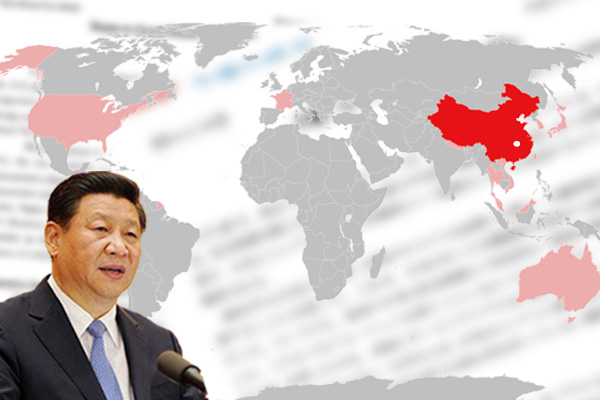A novel coronavirus has caused a pneumonia outbreak in Wuhan, Hebei Province, China. As of the morning on January 27, the coronavirus has infected 2,744 people and led to 80 deaths in China. Chinese authorities have locked down the city of 11 million people and its vicinity, barring Wuhan citizens from exiting the city even if they want to do so.
As people can move even amid the quarantine blockade, however, the new pneumonia outbreak is spreading globally. Eight have been infected each in Hong Kong and Thailand, five each in the United States and Macau, four each in Australia, Taiwan, Japan, Singapore and Malaysia, three each in France and South Korea, two in Vietnam and one in Nepal.
How would the new pneumonia outbreak affect the Xi Jinping regime?
Flagrant delays in responding
China has a bad experience in which authorities’ temptation to hide unfavorable facts led to delays in tackling the severe acute respiratory syndrome, or SARS, in 2002 and 2003. University of Hong Kong Professor Guan Yi, known for his successful SARS research, visited Wuhan for local inspection on January 21 and 22. The situation in Wuhan was already “uncontrollable,” he said, disgusted by bad hygiene conditions at a seafood market in question and citizens’ failure to wear masks and astonished by the lack of hygiene consciousness among local residents and authorities. The Wuhan coronavirus outbreak could reach “10 times the scale” of the SARS outbreak, he warned. Given that the new coronavirus infection spreads even during the incubation period of up to 14 days, the number of infected people can be expected to explosively increase, indicating a serious emergency.
Chines authorities have tempted to hide unfavorable information. First, local governments refrain from reporting an outbreak to the central government. The Wuhan outbreak occurred on December 8 and was made known to the central government on December 30. The Wuhan seafood market where infection was conspicuous was closed on January 1. The Hebei Province blocked Wuhan on January 23. Unfortunately, the outbreak came just before the lunar new year holiday season, when a total of three billion people are on the move usually in China. As the number of homecoming people peaked on January 20, the Wuhan blockade from January 23 came too late.
The Xi Jinping leadership, sensitive to growing domestic and overseas criticisms against its secrecy, convened a meeting of the Communist Party’s Politburo Standing Committee on January 25, in which the party’s General Secretary Xi pointed to the serious situation where the outbreak was accelerating, indicating that the Chinese leader has recognized the emergency. The party at the meeting decided to create a special team in charge of new pneumonia countermeasures and took emergency measures including hospital construction. Overseas group tours were banned from January 27.
While the novel coronavirus is said close to the SARS virus, no anti-SARS drug or vaccine has been developed.
Growing demand for information disclosure
My conclusion is that the new pneumonia outbreak may lead the Xi Jinping regime to ease its secrecy somewhat. At least, foreign countries plagued with new pneumonia patients will undoubtedly urge the Xi regime to disclose more information. Even if so, however, its secrecy may apparently remain unchanged.
Kichinosuke Ihara is a professor emeritus at Tezukayama University.


